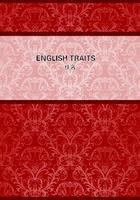
第33章
No nation was ever so rich in able men; "gentlemen," as Charles I. said of Strafford, "whose abilities might make a prince rather afraid than ashamed in the greatest affairs of state;" men of such temper, that, like Baron Vere, "had one seen him returning from a victory, he would by his silence have suspected that he had lost the day; and, had he beheld him in a retreat, he would have collected him a conqueror by the cheerfulness of his spirit." (*)(*) Fuller. Worthies of England.
The following passage from the Heimskringla might almost stand as a portrait of the modern Englishman: -- "Haldor was very stout and strong, and remarkably handsome in appearances. King Harold gave him this testimony, that he, among all his men, cared least about doubtful circumstances, whether they betokened danger or pleasure;for, whatever turned up, he was never in higher nor in lower spirits, never slept less nor more on account of them, nor ate nor drank but according to his custom. Haldor was not a man of many words, but short in conversation, told his opinion bluntly, and was obstinate and hard: and this could not please the king, who had many clever people about him, zealous in his service. Haldor remained a short time with the king, and then came to Iceland, where he took up his abode in Hiardaholt, and dwelt in that farm to a very advanced age."(*)
(*) Heimskringla, Laing's translation, vol. iii. p. 37.
The national temper, in the civil history, is not flashy or whiffling. The slow, deep English mass smoulders with fire, which at last sets all its borders in flame. The wrath of London is not French wrath, but has a long memory, and, in its hottest heat, a register and rule.
Half their strength they put not forth. They are capable of a sublime resolution, and if hereafter the war of races, often predicted, and making itself a war of opinions also (a question of despotism and liberty coming from Eastern Europe), should menace the English civilization, these sea-kings may take once again to their floating castles, and find a new home and a second millennium of power in their colonies.
The stability of England is the security of the modern world.
If the English race were as mutable as the French, what reliance?
But the English stand for liberty. The conservative, money-loving, lord-loving English are yet liberty-loving; and so freedom is safe: for they have more personal force than any other people. The nation always resist the immoral action of their government. They think humanely on the affairs of France, of Turkey, of Poland, of Hungary, of Schleswig Holstein, though overborne by the statecraft of the rulers at last.
Does the early history of each tribe show the permanent bias, which, though not less potent, is masked, as the tribe spreads its activity into colonies, commerce, codes, arts, letters? The early history shows it, as the musician plays the air which he proceeds to conceal in a tempest of variations. In Alfred, in the Northmen, one may read the genius of the English society, namely, that private life is the place of honor. Glory, a career, and ambition, words familiar to the longitude of Paris, are seldom heard in English speech.
Nelson wrote from their hearts his homely telegraph, "England expects every man to do his duty."For actual service, for the dignity of a profession, or to appease diseased or inflamed talent, the army and navy may be entered (the worst boys doing well in the navy); and the civil service, in departments where serious official work is done; and they hold in esteem the barrister engaged in the severer studies of the law. But the calm, sound, and most British Briton shrinks from public life, as charlatanism, and respects an economy founded on agriculture, coal-mines, manufactures, or trade, which secures an independence through the creation of real values.
They wish neither to command or obey, but to be kings in their own houses. They are intellectual and deeply enjoy literature; they like well to have the world served up to them in books, maps, models, and every mode of exact information, and, though not creators in art, they value its refinement. They are ready for leisure, can direct and fill their own day, nor need so much as others the constraint of a necessity. But the history of the nation discloses, at every turn, this original predilection for private independence, and, however this inclination may have been disturbed by the bribes with which their vast colonial power has warped men out of orbit, the inclination endures, and forms and reforms the laws, letters, manners, and occupations. They choose that welfare which is compatible with the commonwealth, knowing that such alone is stable;as wise merchants prefer investments in the three per cents.